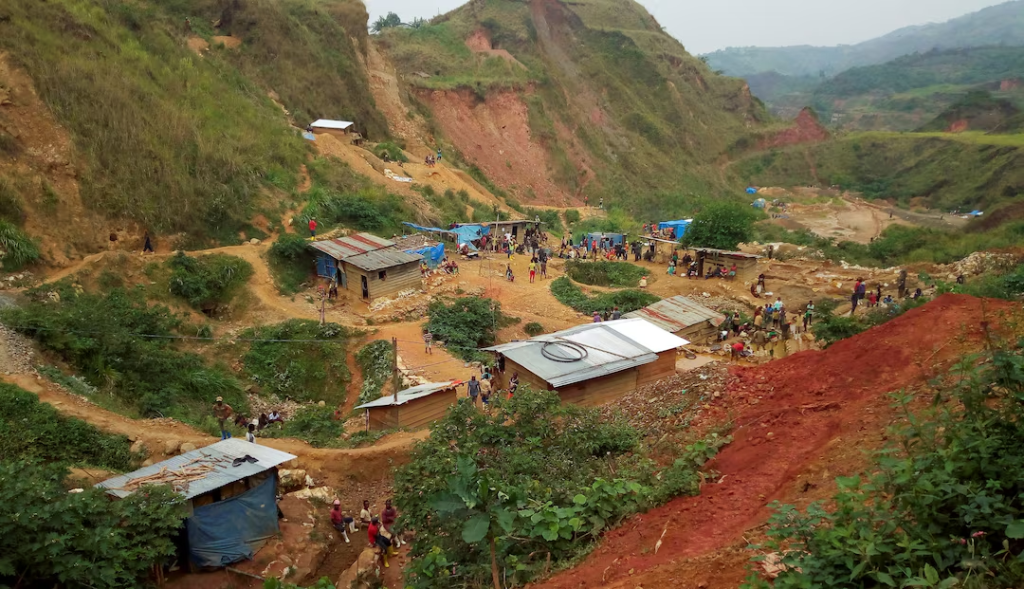Historical Context and Origins
Rwanda’s involvement in the Democratic Republic of Congo (DRC) conflict has deep historical roots, primarily linked to the aftermath of the 1994 Rwandan Genocide. This tragic event, where extremist Hutu factions killed an estimated 500,000 to 1 million Tutsis and moderate Hutus, set the stage for Rwanda’s subsequent interventions in the DRC. Following the genocide, approximately two million Hutus, including those responsible for the atrocities, fled into eastern Zaire (now DRC), creating a humanitarian and security crisis that would have far-reaching consequences for the region.
Rwanda’s Motives and Interests
Rwanda’s involvement in the DRC is driven by a complex interplay of security, economic, and political interests:
1. Security Concerns
Rwanda justifies its military presence in the DRC as a response to perceived threats against Rwandan citizens and Congolese Tutsis. President Paul Kagame has framed the deployment of troops as necessary to protect these communities from potential genocidal threats. This security strategy involves maintaining a buffer zone in eastern DRC to protect Rwanda’s borders, which is particularly crucial given that Kigali, Rwanda’s capital, is only about 150 km away from the DRC border.
The presence of armed groups like the Democratic Forces for the Liberation of Rwanda (FDLR), which includes elements hostile to Rwanda, further justifies Rwanda’s security concerns. Rwanda’s military engagement in the DRC is significant, with an estimated 3,500 to 4,000 troops deployed, equipped with sophisticated weaponry including GPS-jammers and anti-aircraft systems.

2. Economic Interests
Rwanda has substantial economic interests in the DRC, particularly in the mineral sector. The country aims to position itself as a regional hub for the value-adding transformation of mineral resources, with tantalum and gold being major exports. Notably, these minerals are largely sourced from the DRC but exported without the label of “conflict minerals,” making them more appealing to international buyers.
The scale of this economic interest is significant. The National Bank of Rwanda reported that gold accounted for 34% of Rwandan exports, despite Rwanda not having any gold mines, suggesting these are re-exports from the DRC. This economic motivation underscores Rwanda’s strategic interest in maintaining influence over the mineral-rich regions of eastern Congo.
3. Political Influence and Regional Power
Rwanda seeks to extend its influence in the region through both military and diplomatic means. The support for rebel groups like the March 23 Movement (M23) is seen as a way to exert control and influence in eastern DRC. This involvement is part of a broader strategy to project power and maintain regime stability within Rwanda itself.
Actions and Strategies
Rwanda’s involvement in the DRC conflict has manifested in several key ways:
- Military Engagement: Rwanda has deployed a significant military presence in eastern DRC, equipped with advanced weaponry, indicating a long-term commitment to the region.
- Support for Rebel Groups: Rwanda has been accused of supporting the M23 rebel group, which has been active in eastern DRC. This support is part of Rwanda’s strategy to maintain influence and control over the region.
- Diplomatic Maneuvering: Rwanda has engaged in diplomatic efforts to align its interests with those of powerful international actors. Despite criticism, Rwanda continues to sign economic agreements, such as the Memorandum of Understanding with the European Union on sustainable raw material value chains.
Regional Implications
The conflict in the DRC, fueled in part by Rwanda’s involvement, has significant implications for East Africa:
- Security Destabilization: The instability in the DRC poses security threats to neighboring countries, including Uganda, Burundi, and Tanzania. These countries have been affected by the influx of refugees and the spread of armed groups across borders.
- Humanitarian Crisis: The conflict has led to a severe humanitarian crisis, with hundreds of thousands of people displaced. Hospitals are overwhelmed, and there are reports of gender-based violence, looting, and attacks on humanitarian facilities.
- Regional Tensions: Rwanda’s actions have strained relations with the DRC and other neighboring countries. The DRC has accused Rwanda of violating its sovereignty, leading to diplomatic tensions in the region.
- Economic Impact: The conflict affects regional trade and economic development. The exploitation of resources such as minerals has been a contentious issue, with accusations of illegal exploitation by foreign entities, including some East African countries.
Global Implications and International Responses
The conflict in the DRC and Rwanda’s involvement have broader global implications:
- International Condemnation: The United Nations and several countries, including the United States, United Kingdom, and France, have condemned Rwanda for its alleged support of the rebels. UN reports have detailed Rwanda’s military involvement in the DRC, leading to calls for Rwanda to cease its support for the M23 and withdraw its troops.
- Inconsistent International Response: While some Western countries have called for sanctions against Rwandan officials involved in the DRC conflict, the response has been inconsistent. Some countries continue to engage in economic agreements with Rwanda despite the ongoing conflict.
- Global Supply Chain Implications: Rwanda’s involvement in the DRC is seen as part of a broader strategy to control valuable mineral resources. This has implications for global supply chains, particularly in the technology sector, which relies on minerals like coltan and tantalum sourced from the DRC.
- Humanitarian Concerns: The international community’s failure to effectively address the humanitarian crisis in the DRC has drawn criticism, highlighting disparities in global responses to conflicts in different regions.
Conclusion
Rwanda’s involvement in the DR Congo conflict is a complex issue with deep historical roots and significant regional and global implications. Driven by a combination of security concerns, economic interests, and political ambitions, Rwanda’s actions have contributed to ongoing instability in the region. The international community faces the challenge of balancing diplomatic, economic, and humanitarian considerations to effectively respond to the conflict.
As the situation continues to evolve, it is clear that a coordinated international effort is needed to address the humanitarian crisis, promote stability in the region, and find a sustainable resolution to the conflict.

Leave a Reply